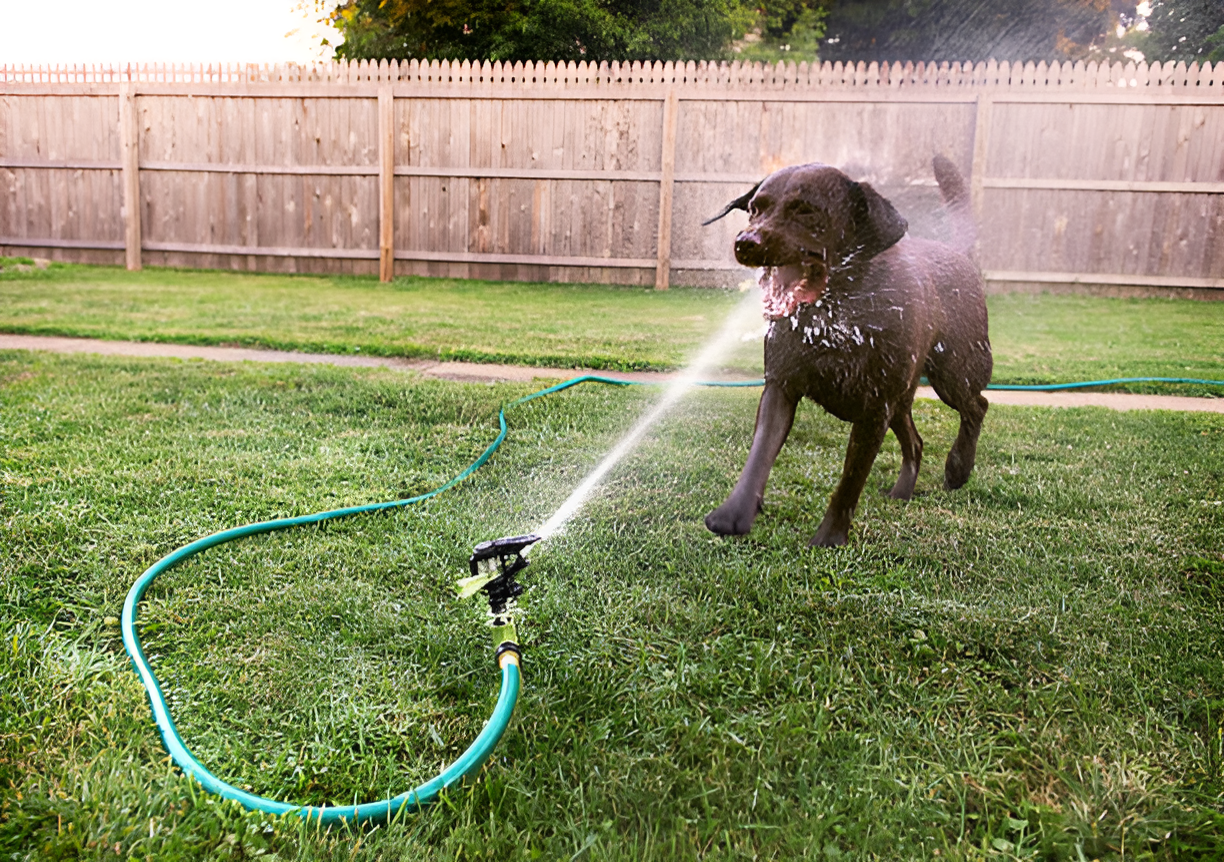Yes, dogs can get sick from drinking hose water if it’s contaminated with harmful compounds or bacteria. As a dog owner, ensuring the safety of everything your furry friend comes into contact with is crucial, including the water they drink. Hose water, often used to fill up water bowls or provide a refreshing drink during playtime, can pose several risks if not properly managed. This comprehensive guide will explore the potential dangers of hose water, how to ensure it is safe for your dog, and alternative hydration options.
Understanding the Risks of Hose Water
Hose water can be a convenient source of hydration for dogs, especially during hot weather. However, there are several risks associated with it:
Contaminants: Hose water can contain various contaminants such as bacteria, algae, chemicals, and even parasites.
Chemical Exposure: Many gardens and yards are treated with fertilizers, pesticides, and other chemicals. These substances can easily find their way into hose water, posing a significant risk if consumed by your dog.
Temperature Hazards: During hot weather, hose water that has been sitting in the sun can become very hot. Drinking excessively hot water can lead to burns or scalds in your dog’s mouth, throat, and stomach.
Pressure Hazards: Drinking from a hose can sometimes involve strong water pressure, especially if the hose has been left untouched for a while. High-pressure water can cause injuries to your dog’s mouth, including damage to teeth and gums.
Common Contaminants in Hose Water
Several contaminants can be present in hose water, each posing different risks to your dog’s health:
Bacteria: Bacteria such as E. coli can be present in hose water, especially if the hose has been left in the sun or in contact with soil. While many strains of E. coli are harmless, some can cause severe gastrointestinal issues.
Algae: Algae can grow inside hoses that are left in the sun, producing toxins that can be harmful if ingested by dogs.
Chemicals: Residues from pesticides, fertilizers, and other chemicals used in the garden can contaminate hose water. Ingesting these chemicals can lead to poisoning, causing symptoms ranging from mild discomfort to severe illness.
Parasites: Parasites such as Giardia can be present in contaminated water sources, leading to infections that cause diarrhea, vomiting, and other gastrointestinal issues.
Ensuring the Safety of Hose Water
To ensure that hose water is safe for your dog, consider the following tips:
Use a Safe Hose: Invest in a hose that is specifically designed for drinking water. These hoses are made from materials that do not leach harmful chemicals into the water.
Flush the Hose: Before allowing your dog to drink from the hose, flush it out for a few minutes to remove any stagnant water and potential contaminants.
Check the Temperature: Always check the temperature of the water before allowing your dog to drink. Let the water run until it is cool to avoid burns or scalds.
Regular Cleaning: Clean the hose regularly to prevent the buildup of algae and bacteria. Store the hose in a shaded area to reduce the risk of contamination.
Alternative Hydration Options
While hose water can be made safer with proper precautions, there are alternative hydration options that may be more reliable:
Filtered Water: Providing filtered water from a clean water bowl or pet-friendly water fountain can ensure that your dog has access to safe and clean drinking water.
Bottled Water: In situations where you are unsure of the water quality, bottled water can be a convenient and safe option for hydrating your dog.
Portable Water Bottles: For outdoor activities, consider using portable water bottles designed for pets. These bottles often come with built-in bowls or dispensers, making it easy to provide clean water on the go.
Recognizing Symptoms of Water-Related Illness
If your dog has consumed contaminated hose water, it is important to recognize the symptoms of water-related illness and seek veterinary care promptly. Common symptoms include:
- Gastrointestinal Issues: Vomiting, diarrhea, and loss of appetite can indicate gastrointestinal distress caused by bacteria, parasites, or chemicals.
- Lethargy: A lack of energy or unusual tiredness can be a sign of illness or poisoning.
- Excessive Drooling: Excessive drooling can indicate oral irritation or burns from hot water.
- Changes in Behavior: Any sudden changes in behavior, such as increased anxiety or restlessness, can be a sign of discomfort or illness.
Conclusion
In conclusion, dogs can get sick from drinking hose water if it’s contaminated with harmful compounds or bacteria. Ensuring the safety of hose water involves using a safe hose, flushing it out, checking the temperature, and regular cleaning. Alternative hydration options such as filtered water, bottled water, and portable water bottles can provide safer and more reliable sources of drinking water for your dog. By taking these precautions and recognizing the symptoms of water-related illness, you can help keep your dog healthy and hydrated.
The photo featured below the post headline is Credit: Joshua_Todd/istockphoto
I hope you find this post helpful and informative. If Yes’ feel free to share it with your friends!
Frequently Asked Questions
Can dogs get sick from drinking hose water?
Yes, dogs can get sick from drinking hose water if it’s contaminated with harmful compounds or bacteria.
What contaminants can be found in hose water?
Hose water can contain bacteria, algae, chemicals, and parasites, all of which can pose health risks to dogs.
How can I ensure hose water is safe for my dog?
Use a safe hose designed for drinking water, flush the hose before use, check the water temperature, and clean the hose regularly.
What are alternative hydration options for dogs?
Alternative options include filtered water, bottled water, and portable water bottles designed for pets.
What symptoms should I look for if my dog drinks contaminated water?
Symptoms include gastrointestinal issues, lethargy, excessive drooling, and changes in behavior.

